The Buddha’s Words — Mindfulness
What it means to live forever, in a Buddhist sense
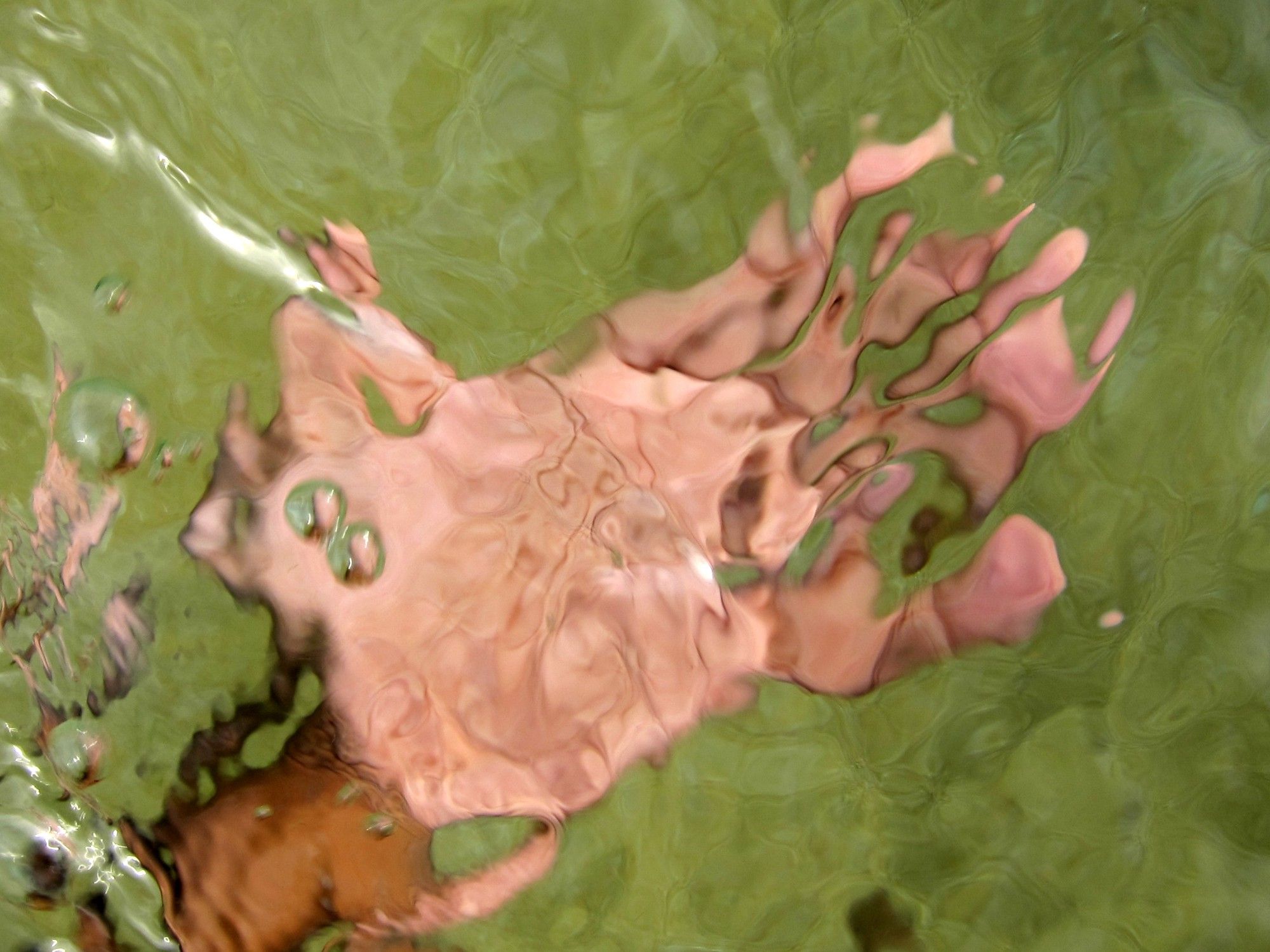
Mindfulness is the core of Buddhist thought. As mentioned, Buddhism is a map, not a mandate. You don’t have to accept any of these things. In fact, it’s immaterial if you do. You have to experience it.
In the last chapter we discussed some of the treasure on the map — freedom from suffering, hatred, clarity of thought. Now we’ll start discussing how to get there. Spoiler alert, it’s a simple answer that you don’t want to hear.
AW Adikaram calls this chapter of his Dhammapada NON-INTOXICATION, but to a Buddha, we’re always drunk. Drunk on sensation, on food, on self, on wealth, on grievance, on Twitter; whatever substance we use to distract ourself from the nothingness (and everythingness) of life. I think a better translation is MINDFULNESS, a word you might know.
Far from a life-hack for tech-bros, mindfulness is the central Buddhist act, which looks a lot like doing nothing. As Oasis said, be here now. It’s so simple that it’s basically impossible.
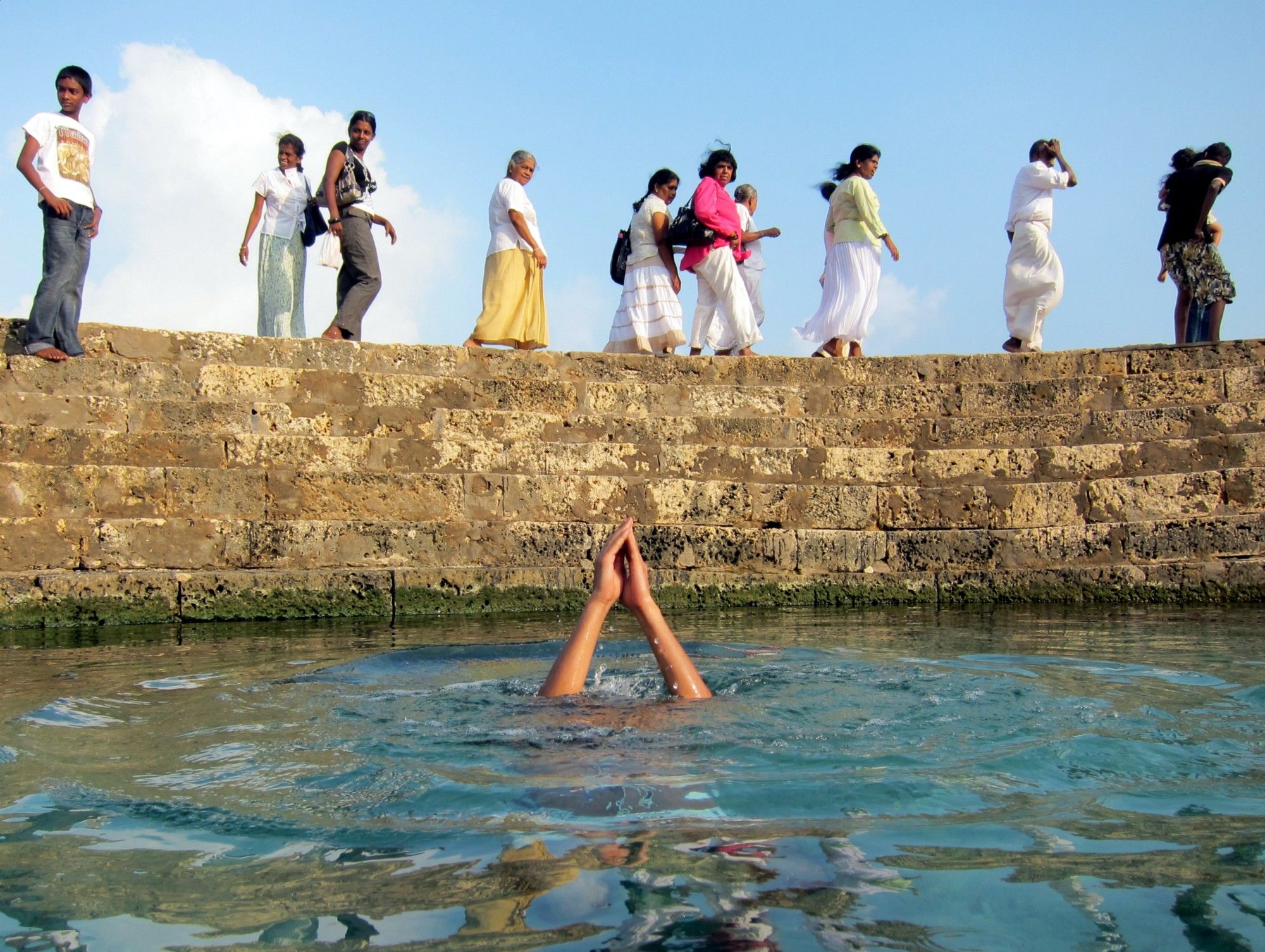
Live Forever
21. Mindfulness is the way to immortality; mindlessness is the way to death; those who are mindful do not die; they who are mindless are as the dead.22. The wise ones attached to the pasture of the Noble Ones, take delight in mindfulness, having known well this (fact) with regard to mindfulness.The western concept of immortality is that you live forever. The eastern concept is that you don’t exist at all. Therefore, like Santa Claus, how can you ever die?
Think of it this way.
Imagine you’re a cup of water on the banks of a river. You’re like ‘oh shit, I’m evaporating’. The Buddha simply says join the stream. You’ll lose your identity as glass of water, but gain so much more.
Just hold a cup of water in your hand and think about it. The atoms you’re drinking are older than the sun. You’ll piss them out and the water cycle will recycle them a trillion times more. Water is effectively immortal. So are you. You only suffer because you cling to the cup, the particular shape you’re in.
The key to immortality is thus not extending you forever. It is discarding this your self like an empty cup. As Bruce Lee said, be water.
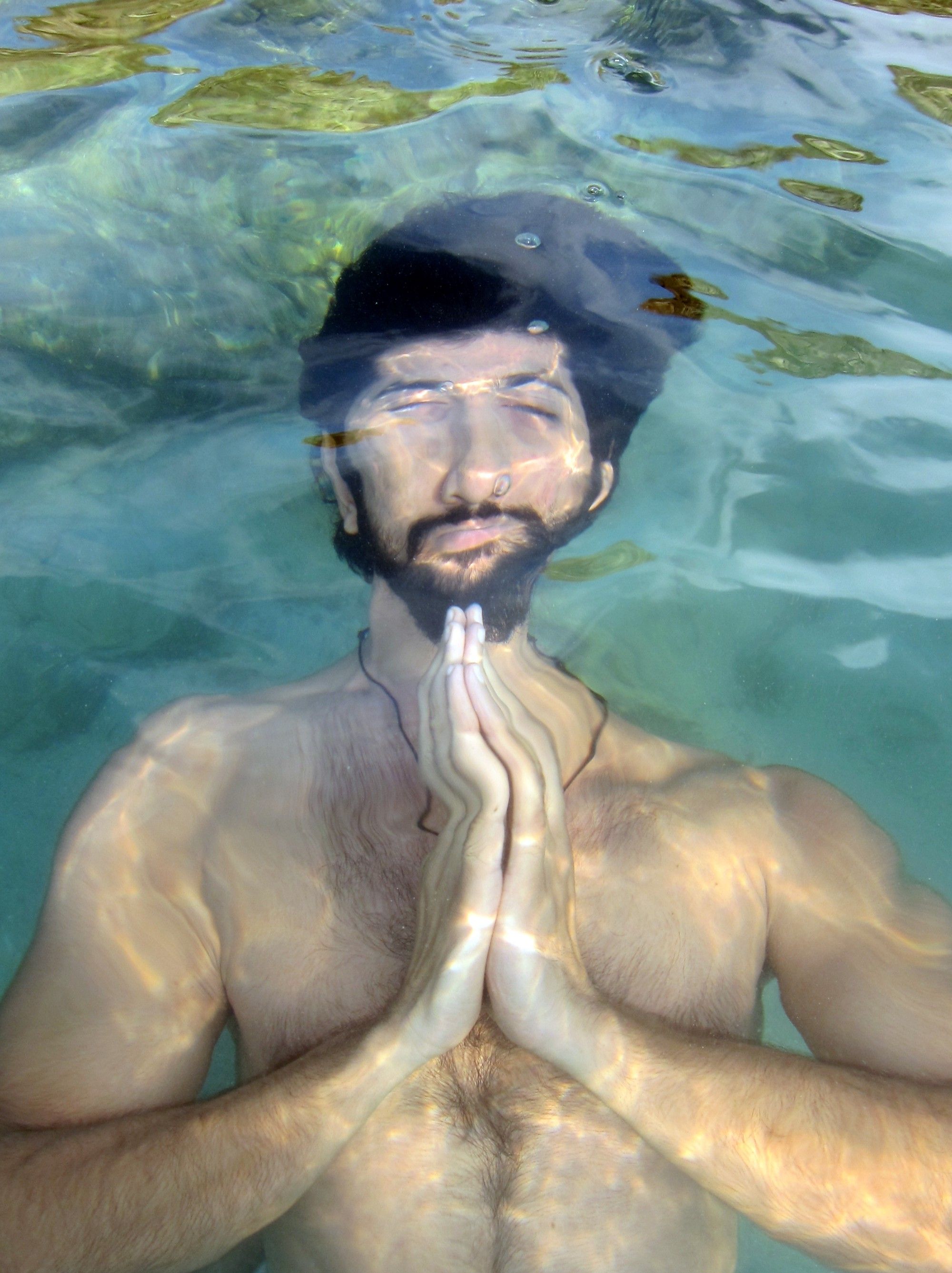
Vibing
23. Contemplating, persevering, always possessing firm endeavour, those steadfast ones contact Nibbāna, which is the supreme freedom from bondage.24. The fame increases greatly of them who are striving and mindful, whose deeds are pure and well-considered, who are restrained and who live righteously and with diligence.On a meditation retreat you’re always practicing mindfulness. There’s no retreat. Eating, pooping, sleeping, it’s all supposed to be done mindfully.
Try walking, it’s the worst. Each step, each breath, you have to be mercilessly present. No headphones, no chatting, no looking around. You look like a snail, but it takes all your energy.
Someone truly mindful has to be focused like this all the time. As a result, when you meet them everything they do is calm, measured, and basically radiates. I’ve met exactly one person like this but it’s a vibe. This was Bhante Gunaratana (Bhante G). Simply being around him immediately changed my mood.
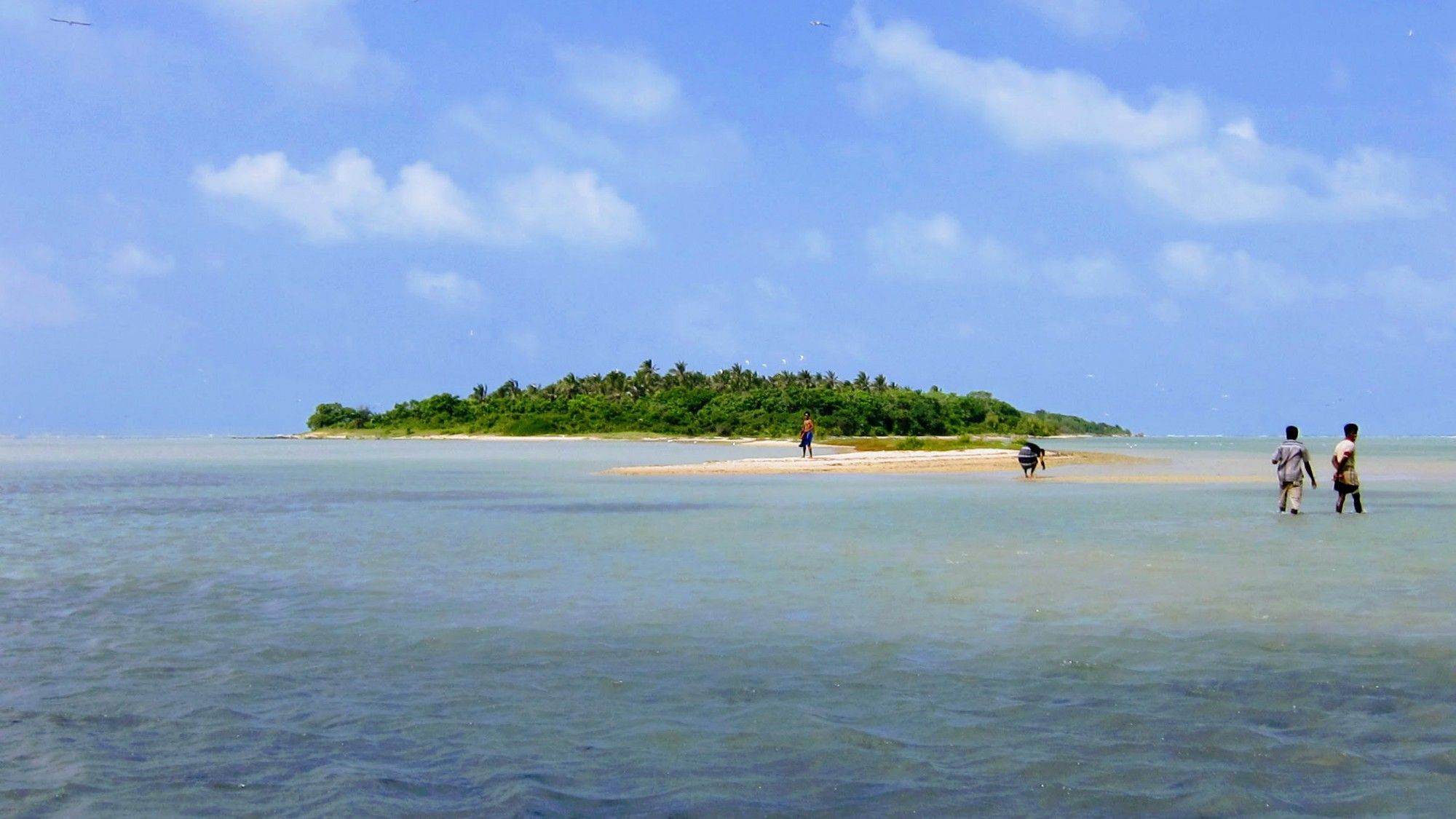
The Island
25. Through endeavour and diligence and through restraint and control, the wise person should make an island which the flood would not sweep away.26. Fools, people of little intelligence, betake themselves to mindlessness. The wise one protects mindfulness as a supreme treasure.Bhante G was like an island in a stream. You could feel the world just split and flow around him. His internal mindfulness effortlessly resisted the draw of the world to be drawn into the simulation, the dream. Like, I suppose, the Matrix, but just an old Sri Lankan monk smiling at you.
If I meditate for more than ten minutes I can experience this myself. Thoughts, worries, ideas will flit through my head like a flood. If I keep returning to my breath, however, and stop thrashing about, the sediment settles, the torrent slows. The water passes me by.
We, being fools, are constantly trying to think our way out of problems but the Buddha’s path is to simply stop thinking so much. To sit still. To not follow the flood but to become an island of calm. I have felt this clarity only for seconds, but some people live there. Such are the wise.
Islands in the stream
That is what we are
No one in between
How can we be wrong
Sail away with me
To another world
And we rely on each other, ah ha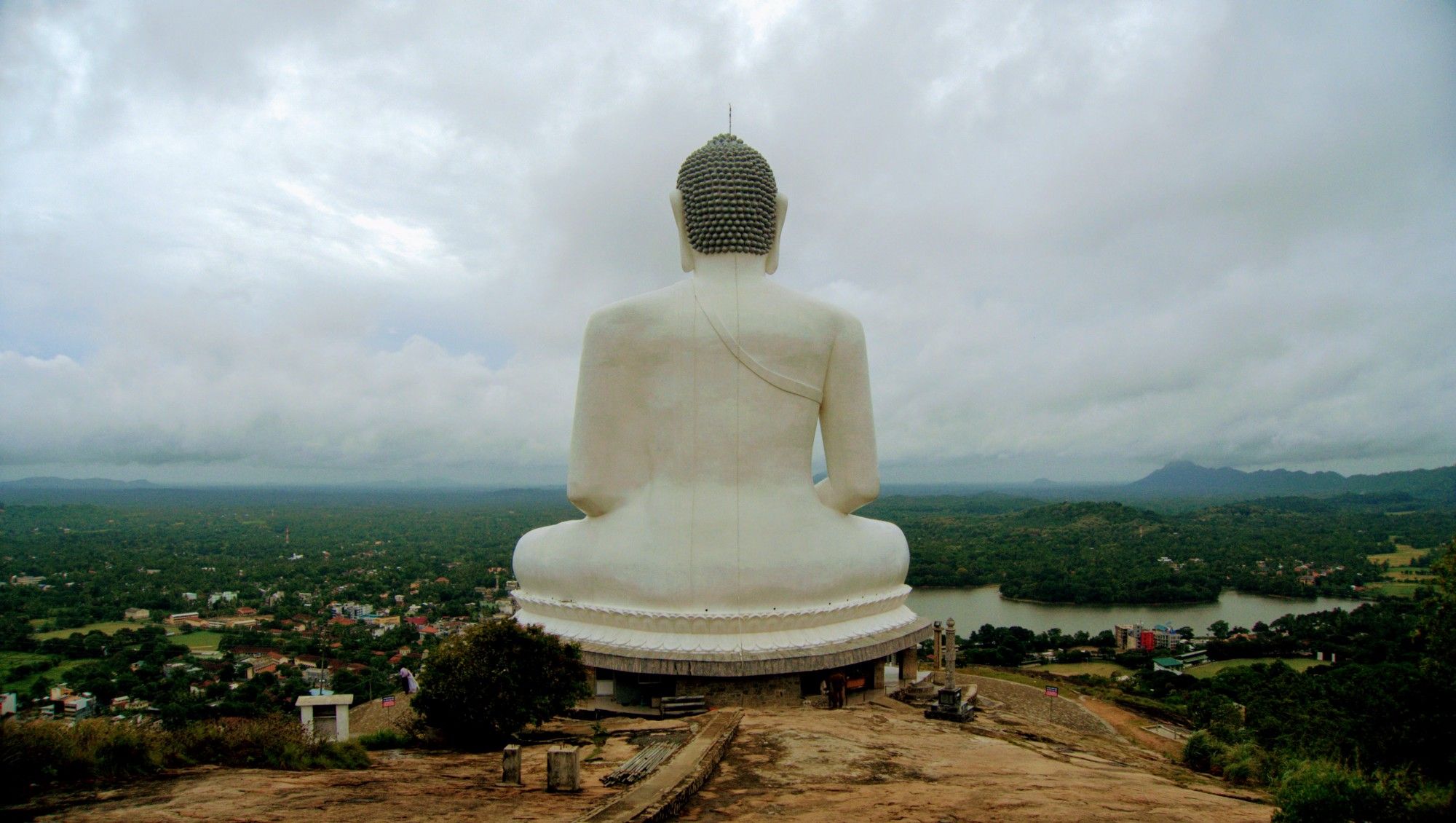
The Mountain
27. Let one not betake themself to mindlessness, let one not betake himself to sense pleasures; for, he who is free from mindlessness and who is contemplative, attains to great happiness.28. When the wise one dispels mindlessness through mindfulness, they having ascended to the tower of wisdom - being themself free from sorrow and being themself wise - looks at the sorrowing people and the unwise as one, standing on a mountain views those on the plains.My mother dragged me to temples for years, where I mostly fell asleep. Then one summer she dragged me to an actual monastery, in West Virginia of all places. It was just a one-and-a-half day retreat and I was getting ready to sleep through it until we sat out in the sun.
“Breathe in, breathe out,” Bhante Rahula said. I was at least awake so I was able to form a mental loop of my breath, an image really. The sunlight on my eyelids was a warm, pulsing orange. Then suddenly it clicked. Rather than forcing concentration on each breath, each breath held me, enthralled. It felt… amazing. Being a college student there was one way I understood this. I felt high.
Later I sheepishly asked Bhante G if I was supposed to feel well, high. He smiled. He said you can, you do, but you have to meditate past that. Indeed, he’s written an entire book on higher jhanas. Many of these sound like metaphysical MDMA, but you’re supposed to go past them as well.
All I knew was that the hem of the Buddha’s garment felt great. I guess the word would be happiness, but you can’t really put it into English words, or words at all. What we call happiness is just a golden chain. Mindfulness is breaking the fetters entirely.
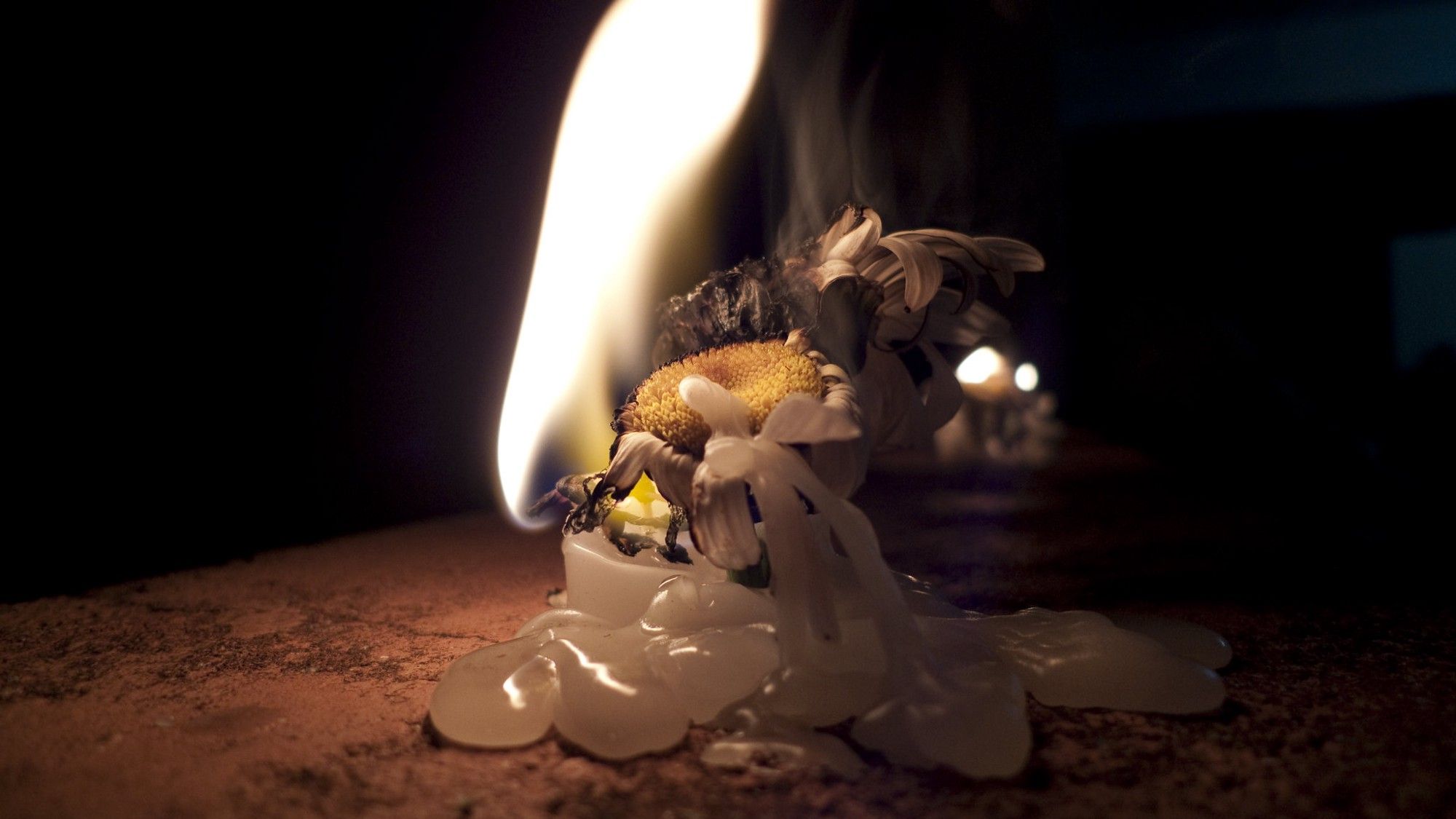
Burning Fetters
31. The monk who delights himself in mindfulness and who sees fear in mindlessness, goes forth like a fire burning fetters both small and large.32. The monk who delights themself in mindfulness and who sees fear in mindlessness, is incapable of failing; near, indeed, are they to Nibbāna.As the Fire Sermon says, the basic idea is that strong focus will ‘burn’ away various attachments. The lesser and the greater, eventually setting you free.
The ear is aflame. Sounds are aflame…
The nose is aflame. Aromas are aflame…
The tongue is aflame. Flavors are aflame…
The body is aflame. Tactile sensations are aflame…
You can feel this in a very small way within the first 5–10 minutes of meditation. You start with thoughts, itches, distractions. Slowly, with concentration, those small fetters fades away. Across a lifetime you can start to ‘burn’ away much bigger fetters, like your very idea of self, the lust for life, the lust for an afterlife. For an enlightened one there’s nothing left. They’re unchained from the wheel.
This chapter thus reminds me that while the Buddha’s way is clear, it is also very, very difficult. Not because I don’t understand the general method, but because I don’t wanna. I like my chains. I like my life. I just want a better life, not some metaphysical obliteration.
Fundamentally, we want to have our cake and eat it too. We want to have this temporary life, and have it forever. It’s an inherent contradiction, but when the Buddha tells us the hard truth we just worship (saddhu saddhu saddhu) and go to the Hindu temple next door. Lord Ganesh will actually help us with our exams.
I mean this quite literally. If you go to a Sri Lankan temple there’s a Hindu shrine built in. People literally go next door. We worship the Buddha but being told ‘you don’t exist’ when you have a problem is not super helpful.
I mean, it’s probably the right answer, but getting there takes a lot of work. So we make our offerings of flowers to the Buddha and food to the monks and we go about our lives. We worship his feet, but we don’t follow his path.
Buddhism is beautiful, it’s true, but in this life, it’s often just too hard. Mindfulness is intense. In a very real sense, you have to lose your mind.
*Note that, going forward, I am changing all the gendered terms in Adikaram’s translation to they/them because, as the somewhat parallel sage Zhuangzi said “here you and I wander together beyond shapes and bodies — is it not wrong of you to seek me within a particular body and shape?”
